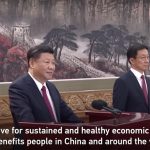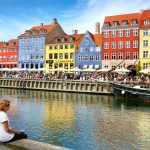A new study says that even in the ‘unrealistic’ event of a total halt to the flow of agricultural chemicals the damage will persist for 30 years.
The enormous “dead zone” in the Gulf of Mexico will take decades to recover even if the flow of farming chemicals that is causing the damage is completely halted, new research has warned.
Intensive agriculture near the Mississippi has led to fertilizers leeching into the river, and ultimately the Gulf of Mexico, via soils and waterways. This has resulted in a huge oxygen-deprived dead zone in the Gulf that is now at its largest ever extent, covering an area greater than the state of New Jersey.
A new study has found that even if runoff of nitrogen, a fertilizer chemical, was fully stemmed, the Gulf would take about 30 years to recover. Even this scenario is “not only considered unrealistic, but also inherently unsustainable”, researchers stated in the work, published in Science.
https://www.theguardian.com/environment/2018/mar/22/dead-zone-gulf-of-mexico-decades-recover-study







